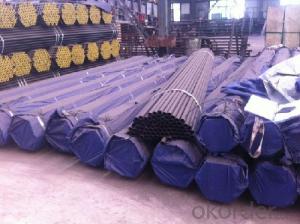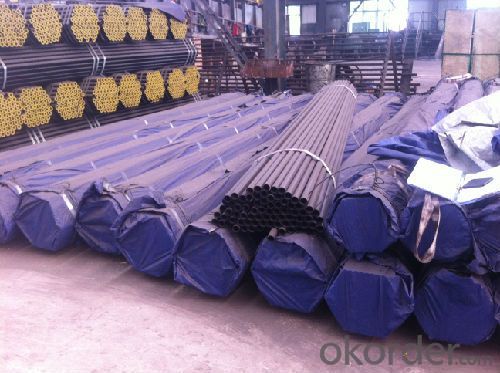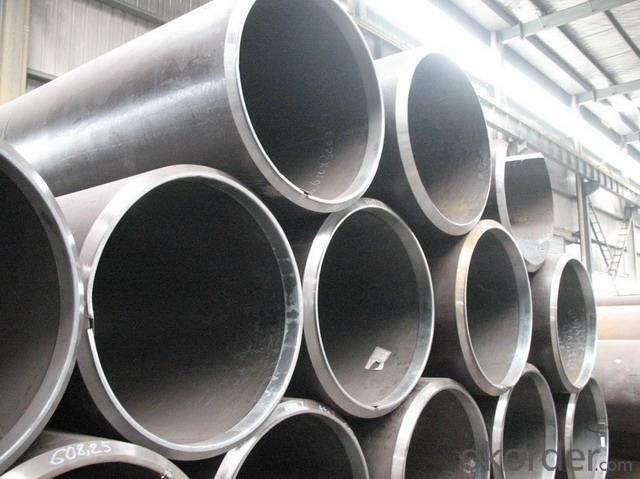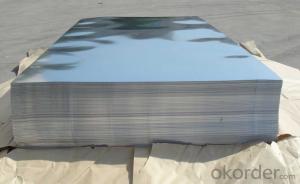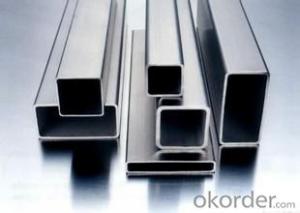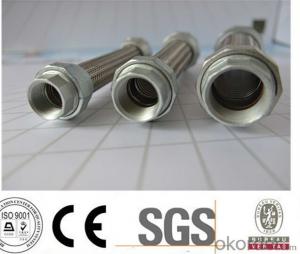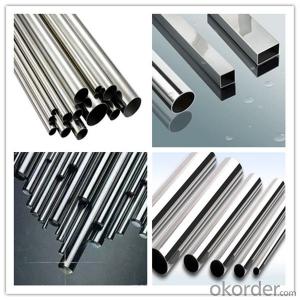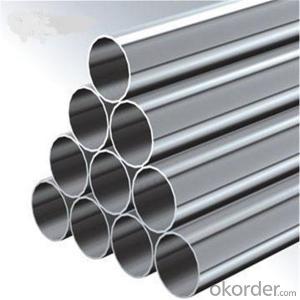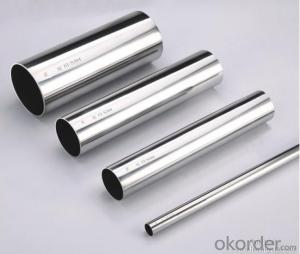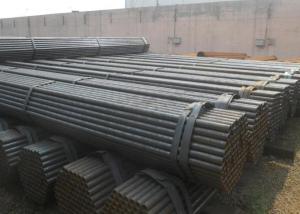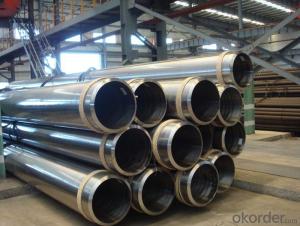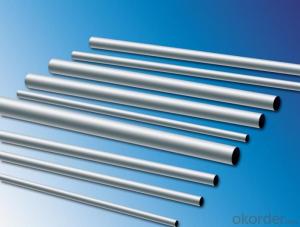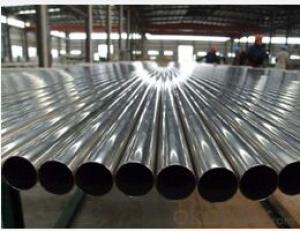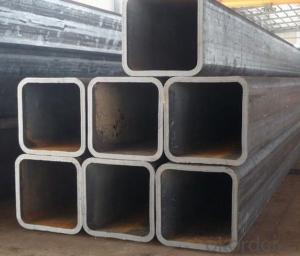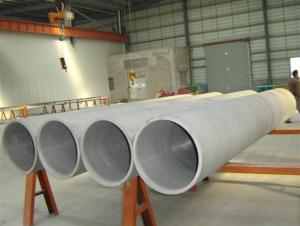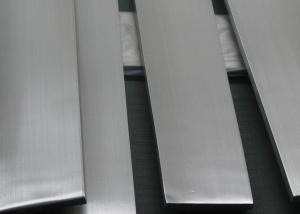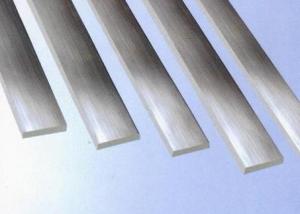ASTM Standard Stainless Steel Welded Pipe
- Loading Port:
- China Main Port
- Payment Terms:
- TT or LC
- Min Order Qty:
- 25 m.t.
- Supply Capability:
- 8000 m.t./month
OKorder Service Pledge
OKorder Financial Service
You Might Also Like
1、Structure of ASTM Standard Stainless Steel Welded Pipe:
ASTM Standard Stainless Steel Welded Pipe is formed by drawing a solid billet over a piercing rod to create the hollow shell. As the manufacturing process does not include any welding, ASTM Standard Stainless Steel Welded Pipe are perceived to be stronger and more reliable. Historically ASTM Standard Stainless Steel Welded Pipe was regarded as withstanding pressure better than other types, and was often more easily available than welded pipe.
2、Main Features of ASTM Standard Stainless Steel Welded Pipe:
• High manufacturing accuracy
• High strength
• Small inertia resistance
• Strong heat dissipation ability
• Good visual effect
• Reasonable price
3、ASTM Standard Stainless Steel Welded Pipe Specification:
Standard | GB, DIN, ASTM ASTM A106-2006, ASTM A53-2007 |
Grade | 10#-45#, 16Mn 10#, 20#, 45#, 16Mn |
Thickness | 8 - 33 mm |
Section Shape | Round |
Outer Diameter | 133 - 219 mm |
Place of Origin | Shandong, China (Mainland) |
Secondary Or Not | Non-secondary |
Application | Hydraulic Pipe |
Technique | Cold Drawn |
Certification | API |
Surface Treatment | factory state or painted black |
Special Pipe | API Pipe |
Alloy Or Not | Non-alloy |
Length | 5-12M |
Outer Diameter | 21.3-610mm |
Grade | 20#, 45#, Q345, API J55, API K55, API L80, API N80, API P110, A53B |
Standard | ASME, ASTM |
1) Material:20#(ASTM A 106/A53 GRB.API5LGRB,GB),45#,16Mn,10#.
2) Specification range:OD:21.3-610mm,WT:6-70mm,length:6-12m or according to the requirement of clients.
3) Excutive standards:GB,ASME API5L.ASTM A 106/A53,Despite of the above standards,we can also supply seamless steel pipe with standard of DIN,JIS,and so on,and also develop new products according to the requirements of our clients!
4) Surface:black lacquered,varnish coating or galvanized.
5) Ends:Beveled or square cut,plastic capped,painted.
6) Packing:bundles wrapped with strong steel strip,seaworthy packing.
4、Packaging & Delivery
Packaging Details: | seaworthy package,bundles wrapped with strong steel strip |
Delivery Detail: | 15-30days after received 30%TT |
5、FAQ of ASTM Standard Stainless Steel Welded Pipe :
①How is the quality of your products?
Our products are manufactured strictly according to national and internaional standard, and we take a test
on every pipe before delivered out. If you want see our quality certifications and all kinds of testing report, please just ask us for it.
Guaranteed: If products’ quality don’t accord to discription as we give or the promise before you place order, we promise 100% refund.
②How about price?
Yes, we are factory and be able to give you lowest price below market one, and we have a policy that “ for saving time and absolutely honest business attitude, we quote as lowest as possible for any customer, and discount can be given according to quantity”,if you like bargain and factory price is not low enough as you think, just don’t waste your time.Please trust the quotation we would give you, it is professional one.
③Why should you chose us?
Chose happens because of quality, then price, We can give you both.Additionally, we can also offer professional products inquiry, products knowledge train(for agents), smooth goods delivery, exellent customer solution proposals.Our service formula: good quality+good price+good service=customer’s trust
SGS test is available, customer inspection before shipping is welcome, third party inspection is no problem.
5. ASTM Standard Stainless Steel Welded Pipe Images
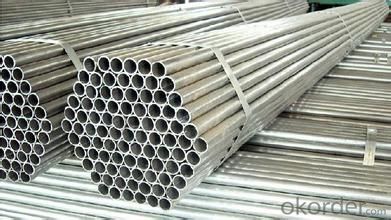
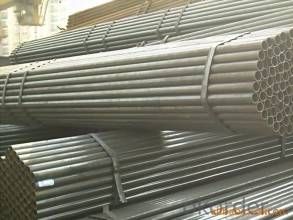
- Q: Can stainless steel pipes be used for gas supply?
- Yes, stainless steel pipes can be used for gas supply. Stainless steel is a highly durable and corrosion-resistant material, making it suitable for various applications, including gas supply systems. It can withstand high pressures and temperatures, ensuring the safe and efficient transportation of gas. Additionally, stainless steel pipes have a long lifespan and require minimal maintenance, making them a reliable choice for gas supply infrastructure. However, it is important to ensure that the stainless steel pipes are properly designed, installed, and meet the necessary industry standards to ensure the safety and integrity of the gas supply system.
- Q: Are stainless steel pipes resistant to scaling and pitting?
- Yes, stainless steel pipes are highly resistant to scaling and pitting due to their inherent corrosion-resistant properties.
- Q: Can stainless steel pipes be used in the renewable energy industry?
- Yes, stainless steel pipes can definitely be used in the renewable energy industry. Stainless steel is a highly versatile and durable material that offers numerous advantages for various applications in renewable energy systems. One of the key benefits of stainless steel pipes is their exceptional corrosion resistance. This makes them ideal for use in environments where exposure to moisture, chemicals, and other corrosive elements is common, such as in solar power plants, geothermal energy systems, and offshore wind farms. Stainless steel pipes can withstand these harsh conditions and maintain their structural integrity over long periods, reducing the need for frequent repairs and replacements. Another advantage of stainless steel pipes is their high strength-to-weight ratio, which allows for the design of lightweight and efficient renewable energy structures. Stainless steel pipes can be used in the construction of support frames, structures, and pipelines for wind turbines, solar thermal collectors, and biomass power plants, among others. Their strength and durability contribute to the overall reliability and longevity of the renewable energy systems. Furthermore, stainless steel pipes are resistant to extreme temperatures, making them suitable for use in high-temperature applications like concentrated solar power systems. These pipes can handle the intense heat generated by solar receivers without undergoing deformation or degradation, ensuring the efficient transfer of heat in the system. In addition to their mechanical properties, stainless steel pipes are also hygienic and environmentally friendly. They are easy to clean and maintain, reducing the risk of contamination and ensuring the purity of fluids in renewable energy processes. Stainless steel is also a recyclable material, aligning with the sustainability principles of the renewable energy industry. Overall, stainless steel pipes offer a reliable, long-lasting, and cost-effective solution for various applications in the renewable energy industry. Their corrosion resistance, strength, temperature resistance, and environmental benefits make them an excellent choice for transporting fluids, supporting structures, and withstanding the demanding conditions of renewable energy systems.
- Q: Are stainless steel pipes suitable for food storage tanks?
- Yes, stainless steel pipes are highly suitable for food storage tanks. Stainless steel is known for its excellent corrosion resistance, making it ideal for storing food and beverages. Unlike other materials, stainless steel pipes do not leach any harmful substances into the stored food, ensuring its safety and quality. Additionally, stainless steel pipes are easy to clean and maintain, which is crucial for maintaining proper hygiene in food storage tanks. They are also durable and can withstand high temperatures, ensuring the longevity and reliability of the tanks. Overall, stainless steel pipes are the preferred choice for food storage tanks due to their sanitary properties, corrosion resistance, and durability.
- Q: Can stainless steel pipes be used for brewery applications?
- Yes, stainless steel pipes can be used for brewery applications. Stainless steel is highly resistant to corrosion and can withstand the harsh conditions of a brewery environment, such as exposure to moisture and chemicals. It is also easy to clean and maintain, making it a suitable choice for transporting liquids in a brewery setting.
- Q: Are stainless steel pipes suitable for extreme weather conditions?
- Indeed, extreme weather conditions pose no challenge to stainless steel pipes, as they are highly suitable. Renowned for their remarkable corrosion resistance, stainless steel pipes are perfectly equipped to endure severe weather conditions such as extreme temperatures, heavy rainfall, and high levels of humidity. Moreover, the exceptional strength and durability of stainless steel pipes enable them to withstand the impact of powerful winds, storms, and other extreme weather phenomena. Furthermore, stainless steel remains unaffected by UV radiation, ensuring that it will not deteriorate or lose its color when exposed to intense sunlight. Consequently, stainless steel pipes prove to be a dependable and enduring choice for any application requiring resistance to extreme weather conditions.
- Q: Are stainless steel pipes resistant to scaling and oxidation?
- Yes, stainless steel pipes are highly resistant to scaling and oxidation. This is due to the presence of a protective layer of chromium oxide on the surface of stainless steel. This layer acts as a barrier, preventing the metal underneath from coming into contact with oxygen and other elements that may cause scaling and oxidation. As a result, stainless steel pipes are able to withstand high temperatures, corrosive environments, and frequent exposure to water without deteriorating or rusting. This makes them an excellent choice for various applications, such as in the construction, chemical, and food processing industries, where resistance to scaling and oxidation is crucial.
- Q: Are stainless steel pipes resistant to sulfide stress corrosion cracking?
- Generally, stainless steel pipes exhibit resistance to sulfide stress corrosion cracking (SSC). This is due to the high chromium content in stainless steel, which leads to the formation of a protective oxide layer on the material's surface. This oxide layer acts as a barrier against corrosive substances, including sulfides, preventing their penetration into the steel. Furthermore, stainless steel pipes are often alloyed with other elements such as molybdenum and nickel, which further enhance their corrosion resistance. However, it is crucial to note that the degree of resistance to SSC can vary based on the specific grade and composition of stainless steel utilized. Consequently, it is vital to select the appropriate stainless steel grade specifically designed to withstand sulfide stress corrosion cracking in the desired application.
- Q: The difference between galvanized steel pipe and stainless steel pipe
- Cast iron pipes (Cast, Iron, Pipe), cast cast pipe. Cast iron pipes are used for water supply, drainage and gas transmission lines. They include cast iron pipes and pipe fittings. Labor intensity is small. According to the casting method, it is divided into continuous cast iron pipe and centrifugal cast iron pipe, in which the centrifugal cast iron pipe is divided into sand mould and metal type two kinds. Divided into gray cast iron pipe and nodular cast iron pipe according to different material. According to the interface form, it is divided into flexible interface, flange interface, self anchored interface, rigid interface and so on. Among them, the flexible iron pipes rubber sealing ring; flange interface cast iron pipe flange fixed in the rubber pad, the flange gasket sealing; rigid interface cast iron pipe socket is large, straight pipe is inserted, sealed with cement, this technology has been basically eliminated
- Q: What are the common sizes of stainless steel pipes?
- The sizes of stainless steel pipes commonly differ based on their intended use and industry standards. However, a range of sizes are commonly found, including 1/8 inch, 1/4 inch, 3/8 inch, 1/2 inch, 3/4 inch, 1 inch, 1 1/4 inch, 1 1/2 inch, 2 inch, 2 1/2 inch, 3 inch, 4 inch, 5 inch, 6 inch, 8 inch, 10 inch, 12 inch, 14 inch, 16 inch, 18 inch, 20 inch, 24 inch, and 36 inch. These sizes are typically determined by the outside diameter (OD) of the pipe. It is important to acknowledge that slight variations in these sizes may occur depending on the specific standards followed by the manufacturer or industry.
Send your message to us
ASTM Standard Stainless Steel Welded Pipe
- Loading Port:
- China Main Port
- Payment Terms:
- TT or LC
- Min Order Qty:
- 25 m.t.
- Supply Capability:
- 8000 m.t./month
OKorder Service Pledge
OKorder Financial Service
Similar products
Hot products
Hot Searches
Related keywords
